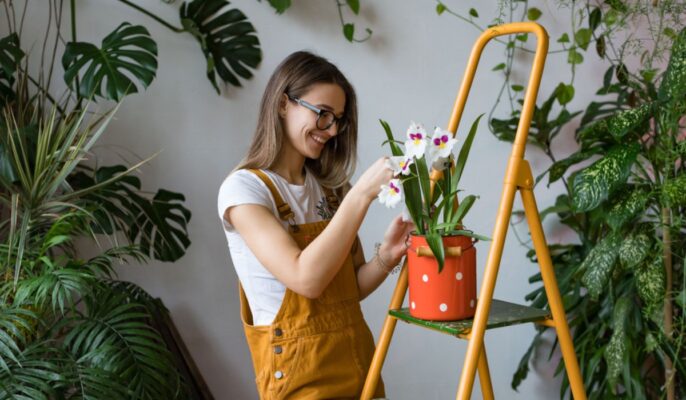Plants bring beauty, freshness, and positive energy into our homes. They have the power to uplift our spirits and create a calming atmosphere. In Vastu Shastra, the ancient Indian science of architecture, the placement of plants is considered essential for creating a harmonious living space. By following simple Vastu tips, you can optimize the flow of positive energy and ensure that your plants thrive in your home. In this article, we will explore various guidelines and recommendations for placing plants in different areas of your home, based on Vastu principles.
Entrance
The entrance of your home is the first point of contact for energy entering your space. Placing plants near the entrance can invite positive energy into your home. Vastu suggests keeping plants on both sides of the entrance door, preferably in attractive pots or planters. However, make sure they do not obstruct the main entrance or create clutter. Avoid placing thorny plants near the entrance, as they can disrupt the flow of positive energy. Instead, opt for auspicious plants like money plants, peace lilies, or bamboo plants.
Living Room
The living room is the heart of any home, where family members gather and guests are entertained. To create a positive and vibrant atmosphere, place plants in the living room. Vastu advises placing larger plants in the corners of the room, as they symbolize growth and stability. Avoid placing prickly or thorny plants in this space, as they can create negative energy. It is recommended to have plants with rounded or soft-edged leaves, such as rubber plants, snake plants, or ficus plants. Additionally, placing a small water feature or a bamboo plant in the living room can attract wealth and prosperity.
Bedroom
The bedroom is a place of rest and relaxation, and it is essential to create a peaceful environment conducive to sleep. According to Vastu, it is generally not recommended to place large plants in the bedroom, as they can disrupt the flow of energy and create excessive moisture. However, small plants like lavender, jasmine, or peace lilies can be placed near the window to promote tranquility. These plants have soothing fragrances and can help improve the quality of sleep. Avoid placing thorny or cactus plants in the bedroom, as they may create tension or stress.
Kitchen
The kitchen is considered the heart of the home, where nourishment and energy are generated. While there may not be ample space for plants in the kitchen, you can still incorporate small plants to enhance the positive energy. Vastu suggests placing herbs like basil, mint, or coriander near the kitchen window or on the windowsill. These plants not only add freshness but also provide easy access to fresh herbs while cooking. Avoid placing large plants in the kitchen, as they can obstruct movement and create clutter.
Study Room/Home Office
The study room or home office is a space dedicated to focus, concentration, and productivity. Placing plants in this area can improve the overall energy and create a conducive environment for work or study. Vastu recommends having plants with broad leaves, such as money plants or jade plants, in the study room. These plants are believed to attract wealth and positive energy. Avoid placing plants directly behind your chair, as they may create distractions. Instead, position them to the side or in a corner of the room.
Conclusion
Incorporating plants into your home not only adds natural beauty but also promotes a sense of well-being and harmony. By following Vastu principles for plant placement, you can optimize the flow of positive energy and create a balanced environment. Remember to choose plants with rounded or soft-edged leaves, avoid thorny or prickly plants, and be mindful of the specific recommendations for each area of your home. Embrace the power of plants and Vastu to enhance the positive energy in your living space.









